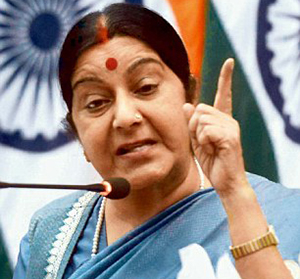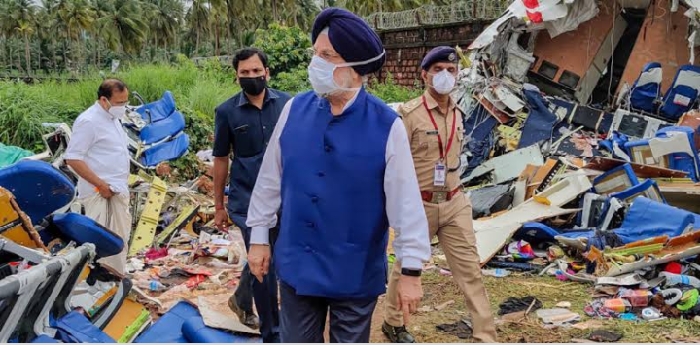United Nations, Sep 26: In a sharp rebuke to Prime Minister Nawaz Sharif's "tirade" on Kashmir, India today said those accusing others of rights violations must introspect as it censured Pakistan for the first time at the UNGA for perpetrating the "worst form of state oppression" in Balochistan.
Taking a veiled dig at Pakistan, External Affairs Minister Sushma Swaraj in her address at the 71st UN General Assembly (UNGA) session said there are nations "in our midst" where UN designated terrorists roam freely and deliver "their poisonous sermons of hate with impunity", an apparent reference to Mumbai attack mastermind and Jamaat-ud-Dawa chief Hafiz Saeed.
She also made a strong pitch for isolating such nations who speak the language of terrorism and for whom sheltering terrorists has become "their calling card".
"In our midst, there are nations that still speak the language of terrorism, that nurture it, peddle it, and export it. To shelter terrorists has become their calling card. We must identify these nations and hold them to account," Swaraj asserted in her nearly 20-minute speech.
"These nations, in which UN designated terrorists roam freely, lead processions and deliver their poisonous sermons of hate with impunity, are as culpable as the very terrorists they harbour. Such countries should have no place in the comity of nations," Swaraj said, in essence making a call to the international community to isolate such nations.
In a strong rebuttal of the "baseless allegations" made by Sharif from the podium of the General Assembly about human rights violations by India in Kashmir, Swaraj said, "I can only say that those accusing others of human rights violations would do well to introspect and see what egregious abuses they are perpetrating in their own country, including in Balochistan. The brutality against the Baloch people represents the worst form of state oppression."






Comments
Add new comment